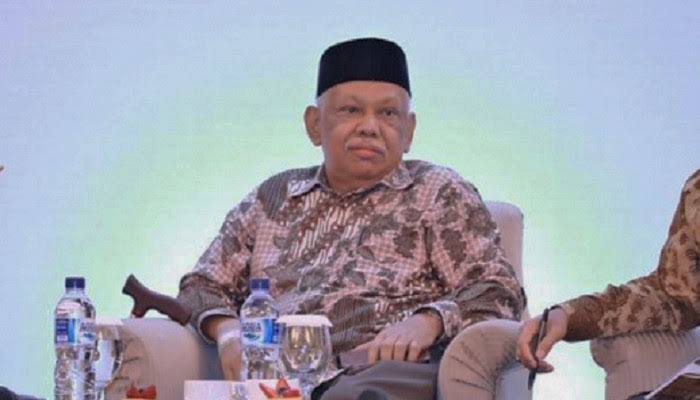- Advertisement -
Pandemic C-19: Disruptions
- Personal and public health with rapid spread of the pandemic globally, more than 90 millions infected and almost two million death as of 11 January 2021;
- Economic and financial crises because of lockdown and gigantic amount of budget spent for C-19 mitigatio;.
- Political disorders at international, national and local levels because of different or conflicting policies of representative government in response to C-19;
- Continuing threat of violent extremism, radicalism and terrorism albeit some apparent decline—there are some 228 suspected terrorist were arrested by Indonesian police in 2020.
Political and Security Contexts
- With all disruptions, the efforts to address violent extremism and terrorism could be affected;
- There should be consolidation (reconsolidation) of politics—restoring democracy amidst increased tendency of authoritarianism using the pandemic;
- Security should not be meant only as police and military force, but must also involve society;
- There should be restrengthening of social cohesion that declines during pandemic;
- Political communication between government and civil society should also be strengthened.
Post-Pandemic: Strategies to Address Violent Extremism
- Comprehensive, far-reaching; advocating attitude against violent extremism and/or terrorism at various levels of society;
- Multi- and inter-institutional both at domestic and global levels;
Prevention at the root-causes of extremism, violence, radicalism and terrorism; - Comprehensive de-radicalization and counter-radicalization programs involving government ministries/agencies, religious organizations/civil society, educational institutions and society at large.
Strengthening Law against Violent Extremism
- The Anti-Terrorism Law in any country against violent extremism and/or terror, should include;
- Prevention from the very beginning of signs/indications of violent extremism;
- Imprisonment of perpetrators of violence acts and suspected terrorists who joined extreme and/or terrorist groups such as ISIS;
- Revocation of passports of those participated in terrorist acts both domestically and abroad;
- But anti-Terrorism Law should not condone arbitrary acts on the part of law enforcement agencies;
- Comprehensive and consistent de-radicalization and counter-radicalization programs.
Enforcing Law and Order
- Law enforcement agencies (Apgakum/Aparat Penegak Hukum) in Indonesia, such as the Densus 88 should be firmer against violent, radical and terrorist groups; there should be no any kind of ‘pembiaran’ (just ignoring) as if condoning violence;
- The Densus 88 and other law enforcement agencies else where should keep the enforcement of law and order in just, fair and humane manner;
- The court should also be firmer in bringing justice;
- There should be much wider and stronger cooperation of law enforcement agencies regionally and globally.
Improving Economic Justice
- The youth, poor and unemployed are among the most prone to radicalism and terrorism;
- There should be more economic improvement and creation of employment;
- Economic growth should go hand in hand with economic justice and improvement of the welfare of the poor;
- There should be more balanced economic growth and stronger economic cooperation at regional and global levels to alleviate poverty and unployment;
- Better economy of these groups of people make it more plausible to integrate them to a wider society.
Improving Welfare Approach
- States and Muslim societies should play a better roles in improving the welfare of the terrorist inmates;
- Related ministries such as Labor, and Social Welfare should train them with certain vocation;
- They should be provided ‘seed money’ for their micro business endeavors after their return to society;
- Related ministries such as education, religious affairs, social welfare, labor/work-force should provide their children with scholarship to ensure their education;
- There should be stronger co-operation internationally in improving their welfare.
Continuing Empowerment of the Moderates
- Indonesia is blessed with the existence of moderate Islamic (Wasatiyah Islam) organizations such as NU, Muhammadiyah, and many others;
- They play an important role in Islamic education, dakwah, social and health services, philanthropy, economic enterprises and many others;
- They also represent Islamic-based civil society: independent vis-à-vis state, non-political, self-organizing, self-financing, playing bridging and mediating roles between state and society—working for better ordering of society;
- There should be better working networks of the moderates and their organizations in Southeast Asia and beyond.
Strengthening Indonesian Islam
- Indonesian Islam is a distinctive paradigm of Southeast Asian Islam;
- Believing and practicing similar ‘Articles of Faith’ and ‘Articles of Islam’, Southeast Asian Muslims have distinctive socio-cultural expression;
- Indonesian Islam has three aspects of Islamic orthodoxy: Ash’ariyah theology, Shafi’iyah fiqh; and Ghazalian Sufism.
- There should continuing strengthening and socialization of Indonesian Islam in the region;
- Indonesian Islam should be more assertive to play greater roles in the mediation and creation of peace at regional and international levels.
Protecting Education
- Educational institutions have been targeted by radical and terrorist groups as the main ground of recruitment;
- Responsible Ministries should take preventive policies and action to prevent infiltration of radical ideas brought by certain people (invited sermon giver or teacher);
- Headmaster and teachers should be made aware of the infiltration and spread of radical ideas through teaching and extra-curriculum activities;
- Teachers should be trained in the national ideology and security of the nation-state in relations with the creation of regional and global peace.
Radical Ideas in Education Institutions
- There are evidence extreme/radical ideas attract many more students at general schools/universities than at Islamic education institutions;
- Students at Natural/Exact sciences tend to have ‘black and white’ perspective of Islam;
- They are more prone to radical ideas transmitted by certain teachers/lecturers and/or preachers in religious study groups;
- There should be also close supervision and control of students’ religious study groups;
- There should be reorientation of the mandatory ‘Religious Instruction’ to counter radical ideas.
Presented at International Seminar ‘Counter-Terrorism and Covid-19: Understanding the Societal and Economic Challenges for Keeping People Safe post-Lockdown’ Research Centre Trust, Peace and Social Relations Coventry University, UK, 13 January 202

